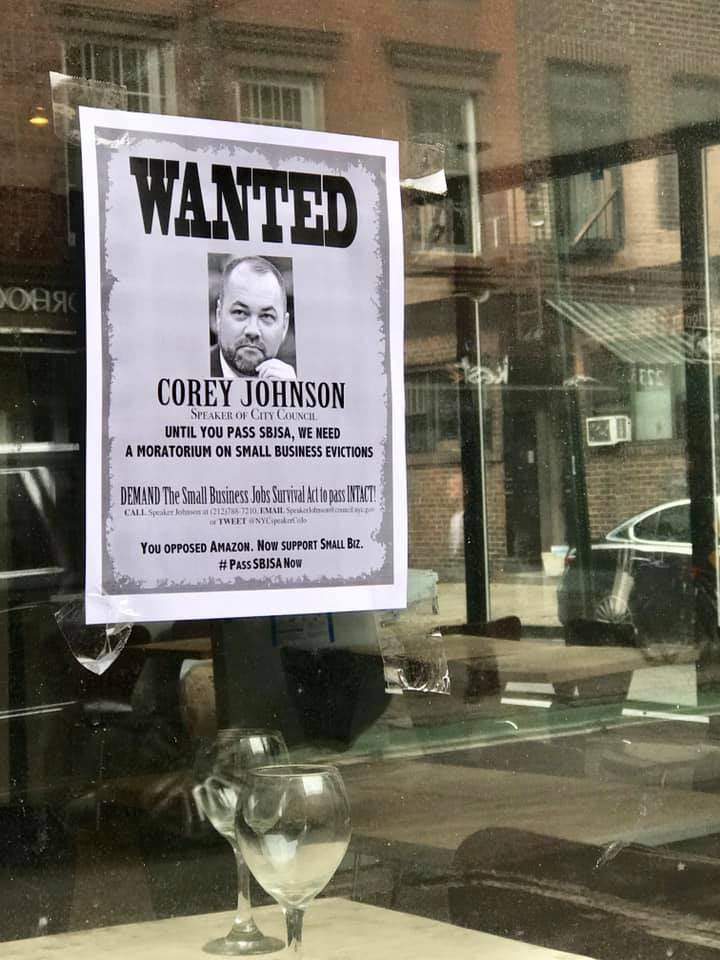BY SHARON WOOLUMS | On March 18, the City Council’s Small Business Committee held a hearing on nine bills that Mark Gjonaj, the committee’s chairperson, claims would help struggling small businesses.
This was the largest number of bills submitted at any one time to “help” small businesses. Meanwhile, lawmakers in all boroughs are hosting forums and community boards are holding meetings to address “high-rent blight” and the resultant empty stores. Will something finally be done for mom-and-pop merchants facing a crisis to survive — or is this just political theater to appease an angry public?
Having written about this issue for six years, I conclude that common sense would have to agree with the economists: First, stop the store closings before focusing on new programs or encouraging new businesses to open. Last year, New York City recorded 413 commercial court evictions each month! Because legal costs and short-term leases don’t justify the expense, the majority of businesses do not fight it out in court, resulting in 1,200 to 1,300 closures each month.

If a new initiative works and one business opens but three close, that’s not progress! If our government can’t address the root cause of the closures of successful long-established businesses — what chance will new businesses have when their leases expire?
Prime sponsors of these new bills were asked two questions: “Do you consider your bill a substitute for the Small Business Jobs Survival Act?” and “As a sponsor of the S.B.J.S.A., will the introduction of these bills cause you to no longer support the S.B.J.S.A.?”
All answered “No” to both, except Chairperson Gjonaj, who made it clear he is not a sponsor of the S.B.J.S.A. In what may come as a surprise to Villagers, City Council Speaker Corey Johnson, once a proud sponsor of the S.B.J.S.A., removed his name from it before becoming speaker.
Johnson made good on his word that the Council would hold a hearing on the long-delayed bill — but it’s now already six months since that hearing occurred.
Councilmember Carlina Rivera said she is looking forward to these bills, and that the S.B.J.S.A. is also being considered for a full Council vote as soon as possible.
Councilmember Helen Rosenthal, though still a supporter, said, “Its passage has been delayed for years by the Council’s strong concern that S.B.J.S.A. would not survive a legal challenge.”
Indeed, in 2009, then-Council Speaker Christine Quinn blocked a vote on the S.B.J.S.A. — which was sure to pass — with a bogus legal roadblock that was later proven false.
Sung Soo Kim is New York City’s leading small business authority and drafter of the S.B.J.S.A. Asked if he believed any of these bills would really “help” small businesses, Kim said, “In my 30 years advocating for small businesses, I can state with confidence this reality: The absolute essential component of any law to stop the closing of businesses is giving tenants the right to renewal of the lease, without which all proposals will fail and all independent owners in New York City will eventually be forced to close.”
The S.B.J.S.A. would give commercial tenants the right to mediation and, if needed, binding arbitration to negotiate fair lease-renewal rents with their landlords.
At the June 2009 hearing on the Jobs Survival Act — which, with 32 sponsors, was assured of passing — David Yassky, the then-chairperson of the Small Business Committee, made a statement that summed up the dire situation.
“I believe that we absolutely have to do something. Period,” he said. “It’s not an option to do nothing. … We cannot allow them to be pushed to the point of disappearance, which is what is happening now.”
For nine years, our city’s government has done exactly that — nothing! These bills are just a continuation of the do-nothing policy, as in, “doing nothing over and over again and expecting different results.” Which, economists and common sense agree, is insane!

































